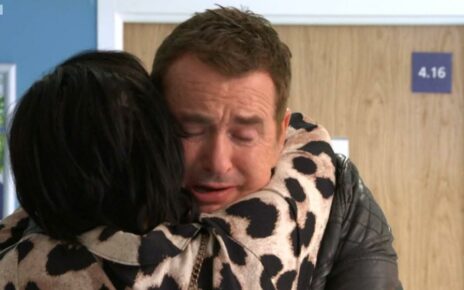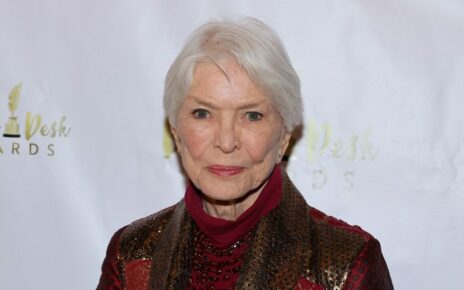The Berlin Film Festival has made one of its highest priorities this year to stand with “the courageous protesters in Iran as they defend themselves against a violent, undemocratic regime.”
The festival hosted a panel discussion on the persecution of artists by the theocratic government, and last week it also held a “demonstration of solidarity with Iran” on the red carpet of the Berlinale Palast venue, an event that drew the participation of jury president Kristen Stewart.
This show of support recognizes the convulsions in Iranian society following the death in police custody of Mahsa Amini, a 22-year-old woman who was detained last September for allegedly failing to wear a hijab in public. Outrage over her death triggered mass demonstrations in Iran, perhaps the greatest threat to the Islamic regime’s rule since the revolution of 1979.
Related Story
International Disruptors: 'Holy Spider' Producer Sol Bondy On The Challenges Of Bringing Ali Abbasi's Iran-Set Oscar Contender To Light & Why They Hope It Will "Serve" The Revolution

One of the films that held its world premiere at the festival highlights another chilling example of state machinery in Iran that subjugates and kills Iranian women. Seven Winters in Tehran, directed by Steffi Niederzoll, follows the case of Reyhaneh Jabbari, a 19-year-old young woman pursuing an academic degree in the capital city. The Berlinale program sets the scene: “In the summer of 2007, an older man approaches Jabbari and asks the architecture student who has a side job as an interior decorator for her help in the design of offices. During the site inspection, he tries to rape her. Reyhaneh stabs him in self-defense. She is arrested for murder and sentenced to death.”

For seven long years – the “seven winters” referenced in the film’s title – Jabbari languished behind bars, uncertain whether and when she would be executed. Partly through the efforts of Jabbari’s mother, Shole Pakravan, the case attracted worldwide attention. Niederzoll, a native of Nuremberg, first heard of it through media reports.
“In 2014, it was quite big in the news also in Germany,” Niederzoll explains. “The uncle of Reyhaneh lives in Germany, and so he was making press [interviews] here. I knew like a little bit, a tiny bit, just a few lines about her story, and of course, not so deep how I and my whole team then went into the story.”
Reyhaneh was the youngest of three girls, and grew up “longing for progress” in repressive Iran. After her arrest, Reyhaneh’s family was told by police that they couldn’t see her or hire a lawyer. One of her sisters told the filmmaker the family learned Reyhaneh’s attacker, Morteza Sarbandi, “was a big shot in the secret service,” an ominous indicator of the kind of justice the accused woman could anticipate receiving.
From the beginning, authorities tightened the screws on Reyhaneh and her family to extract a confession. Reyhaneh later revealed she was beaten during police questioning and housed in an isolation cell in prison. An interrogator told Reyhaneh her family had abandoned her, out of shame over her “crime.” Her youngest sister was arrested as an accessory to murder and allegedly threatened with torture. Reyhaneh’s mom, in an interview with Niederzoll, said when police searched her daughter’s room they planted a knife sheath in an attempt to show the killing of Sarbandi had been a premeditated act.

Even before Reyhaneh went on trial she was given 30 lashes for “having a relationship outside marriage, but without intercourse.” Two years passed before she was convicted of premeditated murder and sentenced to hang as “blood revenge” for Sarbandi’s death. As the putative victims in the case, Sarbandi’s family had the option to forgive Reyhaneh and overturn her death sentence.
Sarbandi’s family dangled the prospect of clemency before Jabbari, but only on the condition that she recant her accusation. She refused. Shortly before she was put to death in 2014, Reyhaneh got a message out to her family. “Beg so that it is arranged that as soon as I am hanged my heart, kidney, eye, bones and anything that can be transplanted be taken away from my body and given to someone who needs them as a gift,” she told her loved ones. “I don’t want the recipient to know my name, buy me a bouquet, or even pray for me. I am telling you from the bottom of my heart that I don’t want to have a grave for you to come and mourn there and suffer. I don’t want you to wear black clothing for me. Do your best to forget my difficult days. Give me to the wind to take away.”

During the course of her imprisonment, Reyhaneh wrote letters and journals and was able to get the writings smuggled out of prison. Iranian actress Zar Amir-Ebrahimi, who was forced to flee Iran in 2008 after running afoul of state authorities herself, voices some of Reyhaneh’s words in the film.
“When I started to read the letters, I couldn’t stop crying,” Amir-Ebrahimi recalls. “It was really moving for me. [The letters refer to] rape. It’s about how you are treated as a woman in this society. And I think, personally, I know this story. I could have ended up like her, and I could imagine myself in that jail.”
Speaking with Deadline in Berlin, Amir-Ebrahimi became emotional thinking about what Reyhaneh went through. In voicing the letters, she said, “Something from my heart came out very connected to her, even if I never met her… It’s hard to just imagine how you can live seven years with this little hope of having a normal life again maybe one day. And then I could imagine her saying that it won’t happen, and you are losing this life, but you stand for something more than that — for your voice, for your dignity. It’s so heartbreaking, really.”
Amir-Ebrahimi says Seven Winters in Tehran speaks to a grim reality in Iran.
“We have this patriarchal tradition, but this case is not only about that, it’s about the really, really corrupted system which lets [authorities] do anything they want to people, especially to women,” she says. “If you don’t collaborate with them, you are condemned to die or to be isolated or whatever. That’s the problem with this system. That’s why it’s really important that Shole [Reyhaneh’s mom], and Steffi, they do this movie. It’s been years now that Reyhaneh isn’t here, but the whole world has to know about this story.”
Must Read Stories
WGA & AMPTP Set Date To Begin Contract Talks; Union’s Contract Expires May 1

Fest’s Inaugural Series Award Winner; ‘White Lotus’ EP Teases Season 3; Reviews; More

First Blizzard Warning In 30-Plus Years Issued For County; 70 MPH Wind Gusts Reported

Barbara Broccoli Perplexed About ‘Till’ & Oscars; News On Richard Hawley, David Hockney, More

Read More About:
Source: Read Full Article


